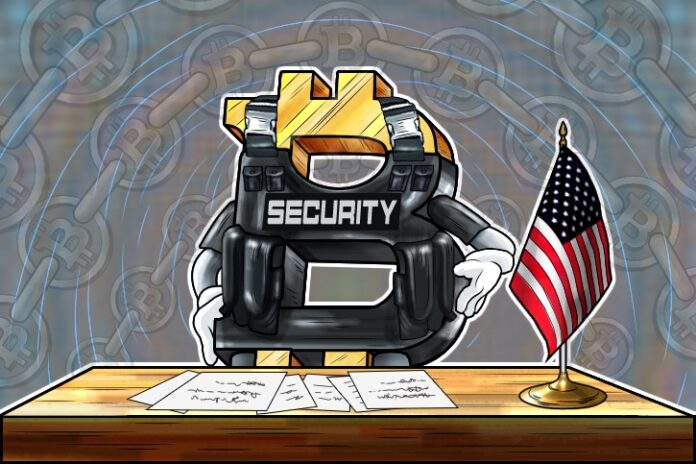The US House of Representatives is watching the crypto scene. They have numerous bills proposed and passed that call for tighter security and investigation on the uses of digital currency. Specifically, they are not happy about the evasion of US sanctions, terrorist network funding, and money laundering. Who would be?
Crypto viewed as a threat
From the bills presented to and passed by the United States House of Representatives, we can tell that US lawmakers are very concerned about the use of cryptocurrency in funding terrorist and anti-American activities. Additionally, lawmakers are concerned about money laundering and sanction evasion techniques enabled by cryptocurrencies. Here is a summary of the bills most recently seen on the House floor.
House Bill 5227, presented by Mark Meadows (R-NC) and Lee Zeldin (R-NY), is the most recent to see the quorum. It was submitted on March 8th and then referred to Financial Services Committee. The text of the bill has not been released yet, but according to its description, the bill would require a report and strategy in regards to crypto and other new technologies implicated in evading sanctions, funding terrorism, and laundering money.
The description also includes the vague descriptor: “and any threat to the US national security.” The description does not entail who will be in charge of drafting this bill, nor does it state who will devise the strategy.
Sanctioned countries develop their own crypto
Two days before that bill, on March 6th, the House passed HB4768, which requires that the president develop a national strategy for combating the financial networks of organized criminals, worldwide. The Secretary of the Treasury would be key to the implementation and determination of said strategy.
The bill includes an assessment of risks related to digital currencies, so crypto is in the spotlight here again. On March 7th, that bill was received by the US Senate and referred to the Committee on Banking, Housing, and Urban Affairs. This bill differs from the most recent submission, HB5227, in that it does not mention the evasion of sanctions via cryptocurrency use.
The new focus on sanctions may be due to a couple of international crypto announcements. A couple of weeks back, Venezuela launched the pre-sale of the Petro, an oil-backed state-issued crypto. The Venezuelan president announced that a gold-backed crypto would also be released. President Madura has hinted that the Petro would be a good way of getting around US sanctions on Venezuela.
Iran announced that they would be launching a state-backed crypto, shortly after the Petro debuted. Iran is also on the sanction list, and foreign affairs between the US and Iran are strained.
Calls for investigation
Another House Bill, HB2825, specifically calls cryptocurrency out as a potential threat to furthering acts of terrorism. This bill passed the House and is currently on the Senate floor, with the Committee on Homeland Security and Governmental Affairs. This one indicates that the US is very concerned about the possible uses of crypto for terrorist networks.
HB5036 was introduced on February 15th by Rep. Ted Budd (R-NC) and Rep. Stephen Lynch (D-MA) and calls to establish a reward system for any information that leads to a conviction related to the terrorist use of crypto. The bill establishes a FinTech Leadership in Innovation Program, which would encourage the development of tech and tools directly aimed at combating and preventing the illegal and terrorist use of crypto.
Continuing back in time with the House, a late 2017 bill, HB2810, was signed into law. This bill demands a report of the potential offensive and defensive uses of blockchain technology, and other distributed database techs.
The US government is not interested in taking risks when it comes to decentralized blockchain-based currencies, and their potential uses by the criminal community. With the SEC cracking down on crypto traders, and the House calling for tighter investigations, the US crypto scene is facing challenges.















